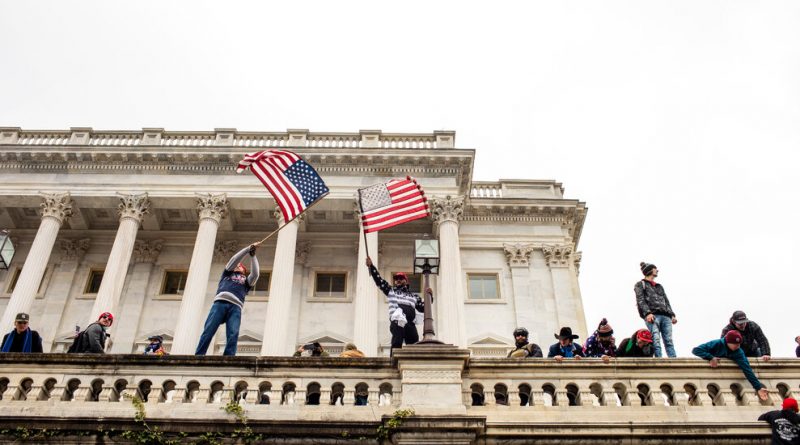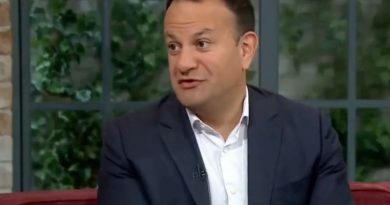In Hundreds of Jan. 6 Cases, Justice Dept. Wins a Battle (for Now)
A federal appeals court on Friday upheld the viability of a criminal charge that has been used against hundreds of people indicted in connection with the attack on the Capitol on Jan. 6, 2021 — and that congressional investigators have recommended using in a potential criminal case against former President Donald J. Trump.
The decision by the U.S. Court of Appeals for the District of Columbia means that the charge — the obstruction of an official proceeding before Congress — can continue to be used in the Justice Department’s prosecutions related to the Jan. 6 riot. It could also ultimately be used against Mr. Trump should the special counsel, Jack Smith, decide to file a case against him related to his efforts to overturn the 2020 election.
But even though the three-judge panel, in a 2-1 ruling, left in place the status quo and temporarily avoided crippling hundreds of Jan. 6 cases by invalidating the obstruction count, it still presented a serious challenge to the Justice Department moving forward.
A provision of the law requires proving that any interference with a congressional proceeding be done “corruptly.” Two of the judges said they were inclined to define that term in a narrow way as receiving a personal benefit — even though the panel as a whole put off a final decision on the issue.
The split decision left wiggle room for defense lawyers to try a flurry of complicated new efforts to invalidate the charge in all of the cases in which it has been used.
Understand the Events on Jan. 6
A future ruling that narrowed the definition of “corruptly” could have significant effects on the Jan. 6 prosecutions.
It could bar the Justice Department from using the obstruction count against defendants who did not commit other unlawful acts like assaulting a police officer. It could even lead to the charge being dropped in situations in which defendants did not personally benefit from the obstruction they are accused of taking part in — circumstances that could be hard to apply to Jan. 6 defendants.
Almost from the start of the vast investigation of the Capitol attack, prosecutors have used the obstruction count to describe the event at the heart of Jan. 6: how, by storming the Capitol that day, members of a pro-Trump mob disrupted the certification of Mr. Trump’s electoral defeat that was taking place inside during a joint session of Congress.
Defense lawyers have long maintained that prosecutors overreached in their use of the law, stretching the statute beyond its intended scope and using it to criminalize behavior that too closely resembled protest protected by the First Amendment. In December, they challenged the viability of the law in arguments in front of the appeals court, making various claims that the charge was a poor fit for what happened at the Capitol and that it should not have been used against any of the rioters.
In its ruling, the appellate panel acknowledged that the obstruction count had never been used in the way it has been used in Jan. 6 cases, but decided that it was nonetheless a viable charge in the riot prosecutions. The ruling reversed decisions made in three separate Jan. 6 cases by Judge Carl J. Nichols, the only judge in Federal District Court in Washington, where the cases are being heard, to have struck down the obstruction charge.
How Times reporters cover politics. We rely on our journalists to be independent observers. So while Times staff members may vote, they are not allowed to endorse or campaign for candidates or political causes. This includes participating in marches or rallies in support of a movement or giving money to, or raising money for, any political candidate or election cause.
The obstruction charge — formally known in the penal code as 18 U.S.C. 1512(c)(2) — was never a perfect fit for the many cases stemming from the Capitol attack. It was passed into law as part of the 2002 Sarbanes-Oxley Act, which sought to clamp down on corporate malfeasance.
The measure was initially intended to prohibit actions like shredding documents that were part of a congressional proceeding. In his initial rulings, Judge Nichols said the count had been used inappropriately because the cases of the three rioters he was considering had nothing to do with destroying or tampering with documents or records.
The appellate panel — made up of two Trump appointees and one judge appointed by President Biden — ruled that Judge Nichols’s interpretation of the law was too narrow and that the obstruction committed by the three defendants in question did not have to relate solely to documents.
The panel noted that the defendants had been rightfully charged with obstruction of a congressional proceeding. The cases included those of Joseph Fischer, a Pennsylvania police officer accused of pushing at law enforcement officers during the Capitol attack; Garret Miller, a Dallas man charged with storming the building and facing off with officers inside; and Edward Jacob Lang, a self-described social media influencer from New York who prosecutors say attacked the police with a baseball bat.
The obstruction charge has been used so far in more than 300 riot cases, including against prominent defendants in far-right groups like the Proud Boys and the Oath Keepers militia. Part of the appeal of the count to prosecutors is that it carries a hefty maximum sentence of 20 years in prison.
In December, in one of its final acts, the House select committee investigating Jan. 6 included the obstruction count in its recommendations to the Justice Department of what charges should be filed against Mr. Trump. A federal judge in California, considering a lawsuit stemming from the committee’s work, separately determined that Mr. Trump had likely committed obstruction as defined by the law.
The appellate panel reserved judgment on the definition of “corruptly” because it was not directly part of the appeal of Judge Nichols’s earlier decisions, leaving open the possibility of future challenges on that issue.
In its arguments before the appeals court, the government claimed that acting corruptly should be broadly construed and include various unlawful behavior like destroying government property or assaulting police officers. The defense had argued for a narrower interpretation, seeking to define the term as acting illegally to procure something to directly benefit oneself or another person.
The panel split on the issue, with two of the judges — Gregory G. Katsas and Justin R. Walker — agreeing on the narrow, more personal view of “corruptly.” The third judge, Florence Y. Pan, took the broader view of the term but was able to get Judge Walker to vote with her to uphold the obstruction law overall.
Source: Read Full Article


